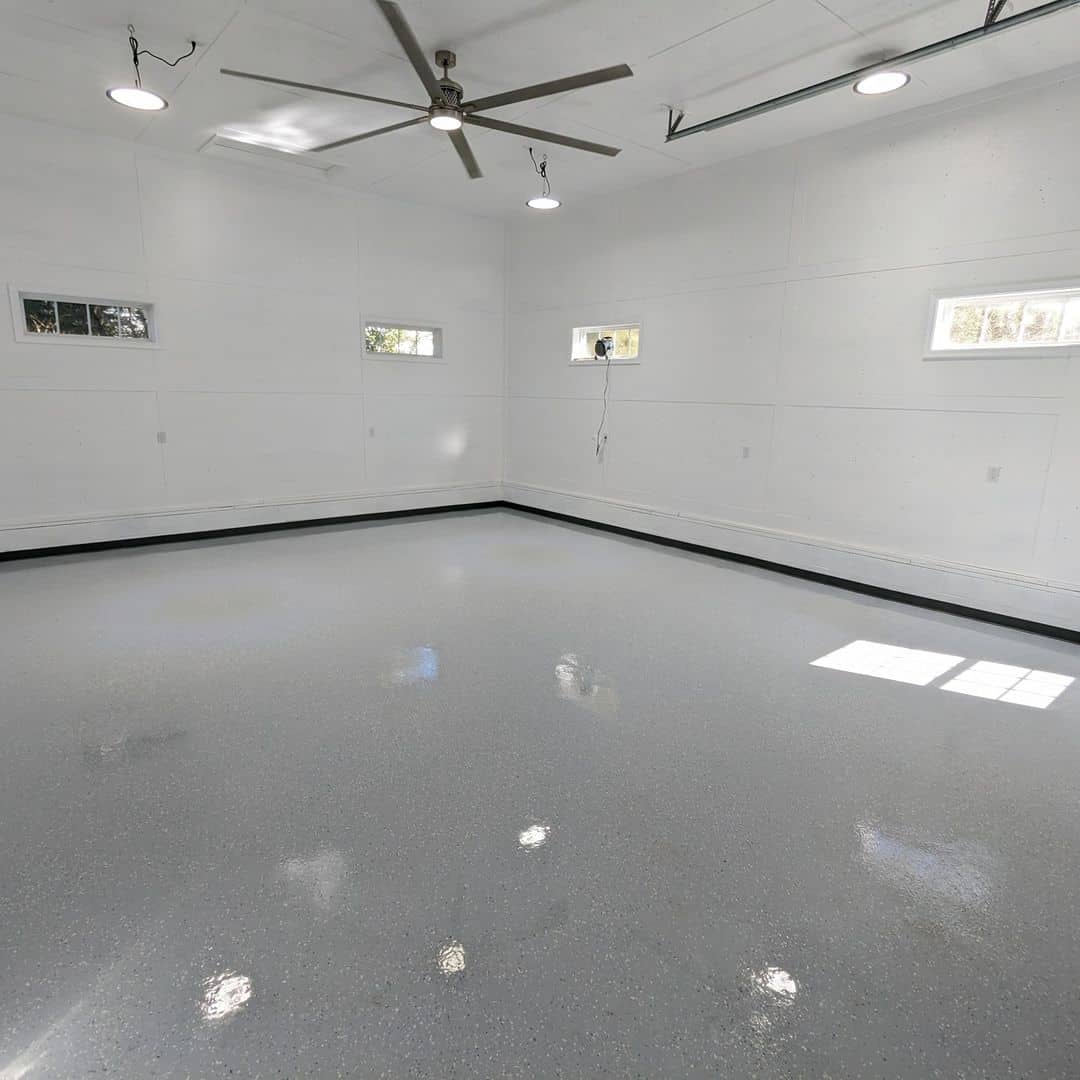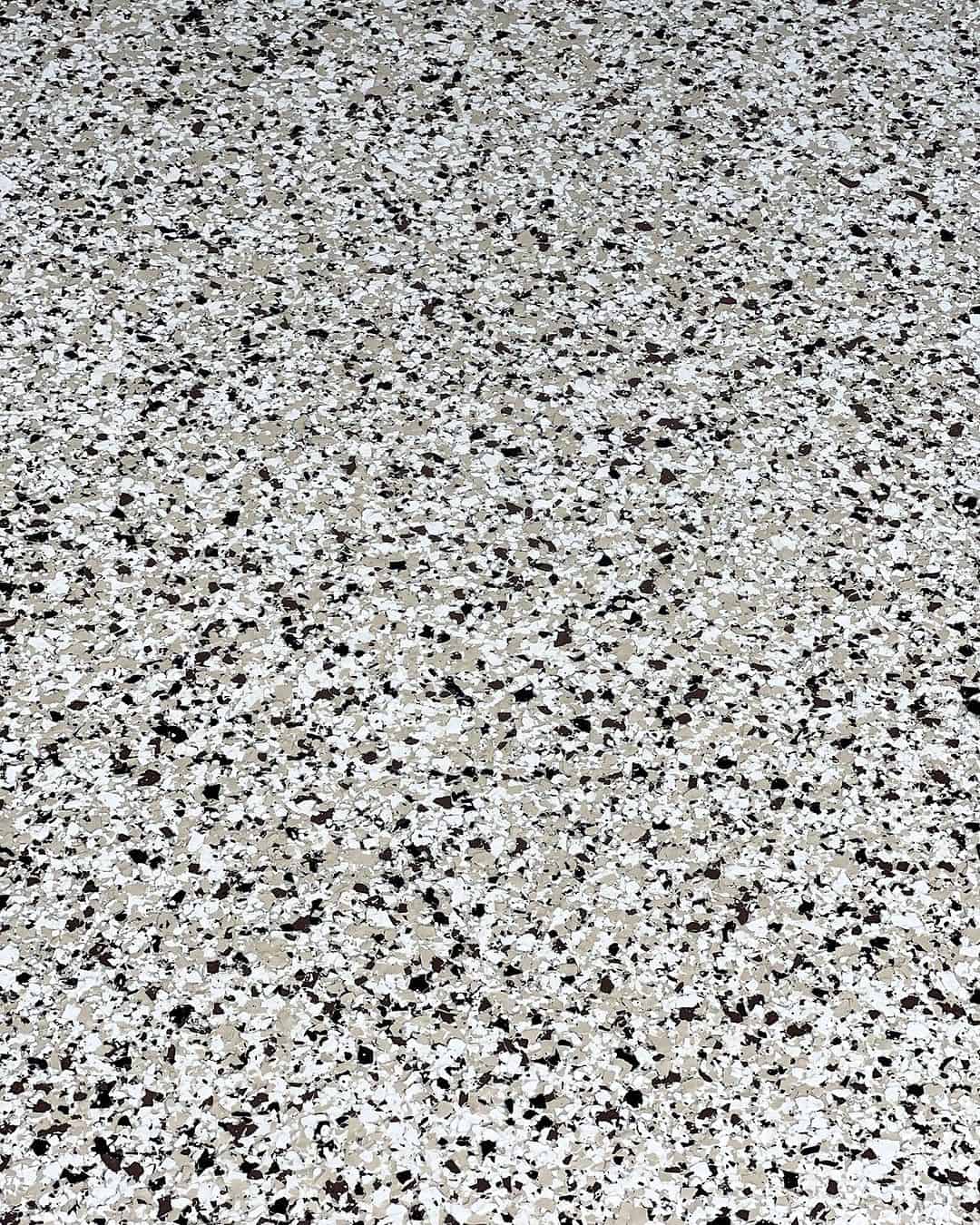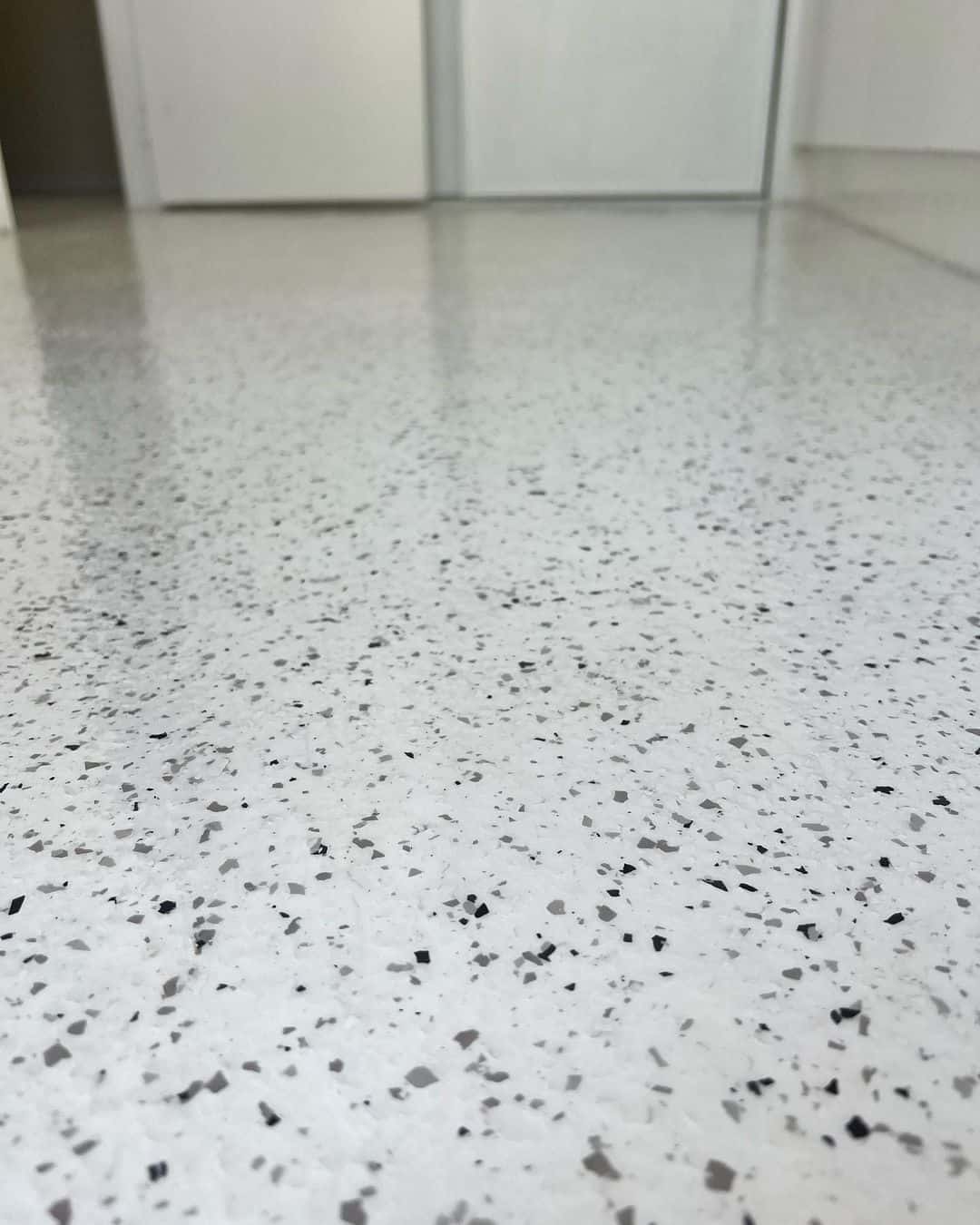Whether you’re setting up a brand new floor, want to repair cracks, or simply fancy a change, epoxy flooring is one of the most popular choices. And for a good reason.
Epoxy flooring is incredibly long-lasting and durable and comes with various patterns and resistances that make them look great and protect vulnerable flooring underneath, too.
And with easy installation and maintenance, it’s no surprise that epoxy floors are found in many different places, including inside homes, in commercial spaces, or used in heavy-duty industrial settings.
This article will explore the most common types of epoxy flooring. We’ll highlight each of their advantages and offer our expert advice on how to get the most out of your new epoxy floor coating.
Table of Contents
Types of epoxy floor coatings
There is a variety of different epoxy on the market. Many share common qualities like durability, strength, and resistance.
However, certain situations require specific epoxy. We’ve selected eight of the most common types that excel in one or more areas that cover almost every situation.
1. Self-leveling epoxy
One of the most common types of epoxy flooring is self-leveling epoxy. This fan-favorite is easy to apply; the coating spreads outward to create an even, smooth layer.
This epoxy is solid and durable and will require little to no maintenance over the years. It’s also easy to clean and chemically resistant, allowing you to use strong industrial cleaners without risking the structure and stability of the epoxy.
Additionally, self-leveling epoxy floors commonly have built-in UV resistances, meaning they won’t fade when exposed to direct sunlight. It comes in a wide selection of colors and finishes. This makes it ideal for residential rooms such as kitchens and garages and commercial spaces like gyms, showrooms, and warehouses.
2. Self-dispersing epoxy
Self-dispersing epoxy is a tailor-made coating for commercial floors that experience heavy-duty traffic like forklifts, delivery trucks, and trailers. It has small particles that increase its impact-resistances.
Self-dispersing epoxy also forms an effective barrier that protects underlying flooring from breakages or caving, making it an ideal choice for spaces where heavy machinery is stationary.
Moreover, you can also purchase this epoxy with unique ingredients like quartz sands. This coating makes the floor slip-resistant and can be particularly useful in commercial spaces where liquids and chemicals are stored, including kitchens, utility rooms, and restrooms.

exteriorperformancecoatings
3. Mortar epoxy
Like self-dispersing epoxy, epoxy mortar floors are solid, durable, and ideal for many industrial and commercial settings.
It is a mixture of epoxy and powdered cement that gives it impact, chemical, and stain resistance. It’s a standard flooring with heavy-duty machinery, kitchens, and warehouses.
This kind of epoxy hasn’t many color or texture choices and is unsuitable for rooms or spaces where appearances matter. To counter this, some people lay it as a supportive undercoat and then place a different layer of flooring on top to improve its appearance.
4. Anti-static epoxy
Poor installed and poorly protected flooring can damage electrical machinery and goods. It is often an industry requirement to have a specialized anti-static coating on floors to prevent electrical buildups and accidental damage.
Anti-static epoxy floors are tailor-made to contain unique conductive materials that ground a person’s charge. It prevents static electricity from traveling around the room and dissipates potential discharge.
Furthermore, it has low-moisture absorption and high electrical insulation, making it ideal for electrical rooms, laboratory settings, testing facilities, and storage facilities with flammable gases or materials.
5. Graveled Epoxy
Arguably the most popular epoxy for decorations and style is graveled epoxy. Many businesses use this epoxy in lobbies to showcase their brands and logos or reflect their business color schemes.
Appearances aside, graveled epoxy is still a hardy coating and can be as long-lasting as other resins. Homeowners choose gravel epoxy to coat their driveways or pathways, as it can withstand footfall easily while giving an appealing texture to outdoor spaces.

nulook_floors_gold_coast
6. Flaked Epoxy Applications
Flaked epoxy is seen more as an application to existing epoxy than a coating type. It is often used in public spaces like cafeterias and healthcare facilities, as they look attractive and clean.
But the “flakes” aren’t purely decorative. They can offer slip-resistances to any room, making them an ideal addition to bathrooms, gyms, kitchen spaces, and utility rooms. Finally, epoxy flake floors can help mask imperfections, cracks, or mistakes in the original floor design.
7. Vapor barrier epoxy
This type of epoxy is applied to concrete floors to create an impenetrable layer that reduces vapor transmission. This prevents moisture from being able to enter the concrete slabs, protecting them from degradation and exposure to high levels of humidity.
Vapor barrier epoxy is particularly useful in commercial settings where there may be a lot of liquids or moisture buildup. It protects the concrete flooring underneath and has unique properties that can speed up the overall drying time of the floor.
It is an incredibly effective epoxy for spaces exposed to water, including locker rooms, garage floors where plumbing systems are exposed, and industrial areas where water gathers.
8. Metallic epoxy
Metallic epoxy is a solid epoxy often used as a glossy finisher for concrete surfaces. It contains metallic additives that produce a vibrant look to flooring that changes color as you walk by.
They are often used in medical settings such as clinics or open lobbies because they look hygienic. Like other epoxy resins, they are also hardy and long-lasting.
The only downside to metallic epoxy is its cost – because of the color changing the design, they are often considered a premium style choice.

moretonbayepoxyflooring
The benefits of epoxy flooring
There are many different benefits to using epoxy flooring. Some of these include:
- Long-lasting: With the proper maintenance and care, epoxy flooring can last 10 to 20 years.
- Resistances: Epoxy coating comes with several additional resistances, including chemical, impact, and water resistances. Some epoxy can have ingredients like quartz sands mixed in to give slip-resistances too.
- Installation: Many epoxy floors are effortless and straightforward to install. Some self-disperse, ensuring that it will balance out into an even coat.
- Durability: Epoxy comes in various strength levels, with some capable of supporting hefty traffic and machinery.
- Design: Many people assume epoxy only fits commercial spaces. But the material can come in a wide selection of colors, designs, textures, and patterns that can easily find a home in residential rooms.
- Easy maintenance: Epoxy flooring is straightforward to clean. You only need a mild cleaning solution and a microfiber mop to shift any stain, dirt, or debris.
- Watertight: Epoxy acts as the perfect barrier from water, ensuring the underfloor never comes in contact with liquids. This makes it especially useful when damp-proofing your garage or basement floor.
Expert tips when laying epoxy flooring
- Epoxy is often placed before the final flooring surface.
- Using a primer on concrete slabs is a good idea before adding epoxy. This ensures the concrete is free of grease, dirt, oil, or solvents that may interfere with the adhesive bonding.
- Epoxy usually lasts for about 30 minutes after mixing. Be prepared to apply the coating quickly.
- Wait 12 hours for the epoxy to dry before applying additional coats.
- If mixing the epoxy yourself, follow the manufacturer’s instructions carefully to ensure the epoxy bonds correctly.
- Epoxy coating can be applied directly over and under various materials, including concrete, plywood, tiles, carpet, and hardwood floors.
- Hardeners can be used to speed up the drying time of epoxy coats into a solid form.
- Special epoxy is required when large amounts of electricity or flammable materials are nearby.
Conclusion
Epoxy flooring is one of the most popular and long-lasting coatings you can choose for your floor. It’s versatile, affordable, and available in many stores nationwide. No matter your project, it can easily fits into residential, commercial, and industrial settings.
As our article has shown, several types of epoxy cater to various uses, and you must spend some time researching each one to find the perfect coating for your needs.
Some epoxy has impact resistances that allow them to hold heavier weights. Others have built-in chemical and slip resistances that make them useful in kitchens and warehouses. In contrast, others are easy to apply and help add a layer of protection over cracks.
One of the most overlooked benefits of modern-day epoxy is that it can come in various colors, patterns, and textures, ensuring they blend well in homes and commercial spaces.
If you still have questions about the different types of epoxy and which you should choose, please comment below.
But if in doubt, remember:
- Epoxy is a term used to describe any special coating created from two components.
- Self-dispersing and epoxy mortar excel in heavy-duty traffic and industrial spaces.
- Anti-static epoxy is required if electrical machinery or flammable materials are nearby.